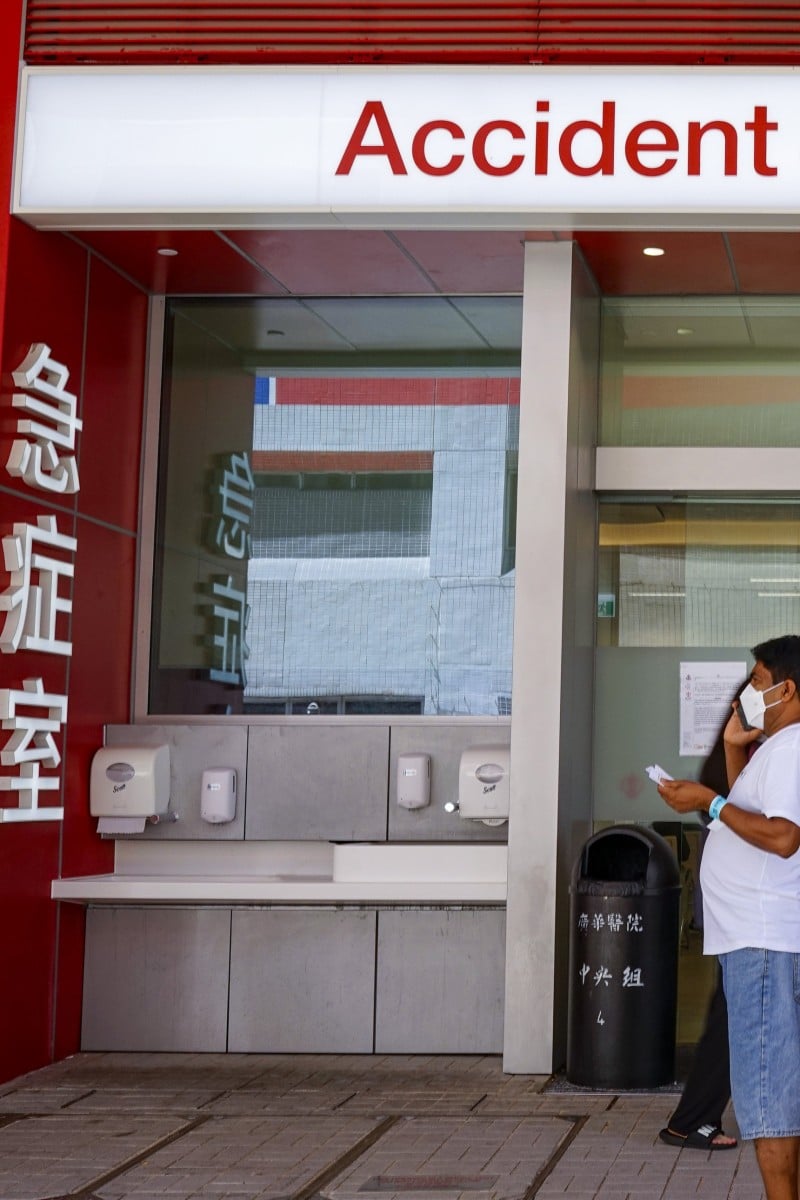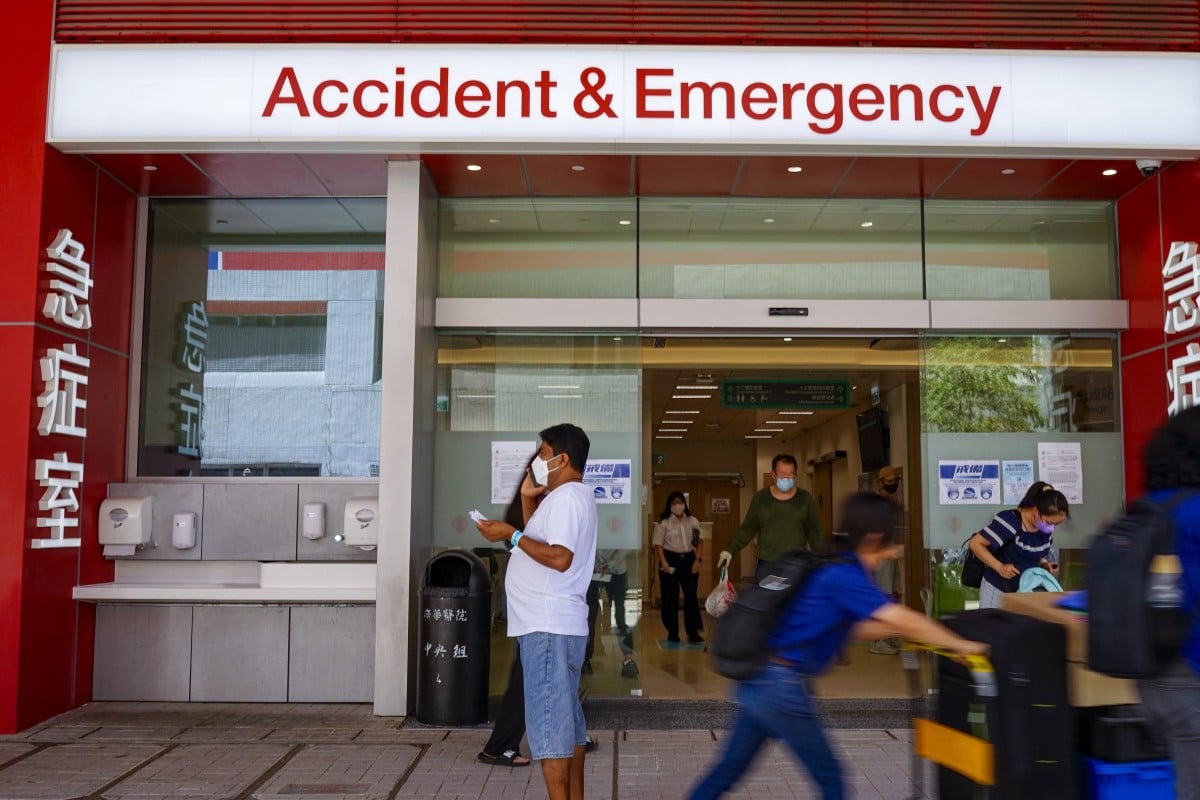
- Non-urgent patients can receive HK$180 if they leave without seeing the doctor; health authorities expect surge in respiratory infections
- Special arrangement valid from February 9 to 18; aim is to free up labour and resources on urgent cases
 Residents who give up waiting to see a doctor at Hong Kong public hospital A&E departments will be eligible for a refund over the holiday period. Photo: Warton Li
Residents who give up waiting to see a doctor at Hong Kong public hospital A&E departments will be eligible for a refund over the holiday period. Photo: Warton LiPublic hospitals in Hong Kong are trying to encourage non-urgent patients to seek treatment elsewhere and not crowd accident and emergency (A&E) departments. Those who give up the waiting period and leave over the Lunar New Year holiday will be offered a refund on the attendance fee.
Secretary for Health Lo Chung-mau on Tuesday said he expected a surge in respiratory infections over the holiday period, as the mercury would drop again, but the government had enacted measures to handle a rise in demand for hospital services.
Dr Tony Ko Pat-sing, chief executive of the Hospital Authority, said the special refund arrangement, which would be offered from Friday to February 18, aimed to focus labour and resources on urgent cases.
“We hope the arrangement can help encourage mild or stable cases to seek help from the private sector or general outpatient clinics,” he said. “We have seen patients who wished to leave while waiting, but chose to stay because they already paid the attendance fee.”
Patients at A&E departments are divided into five categories based on their medical condition. Non-urgent cases are usually asked to pay a HK$180 (US$23) attendance fee before seeing a doctor, while urgent ones pay the amount after treatment.
Under the special arrangement, those categorised as “semi-urgent” or “non-urgent” can choose to have their attendance fee refunded if they change their mind within 24 hours of registration and leave. The money will be reimbursed within a month.
Your Voice: Raise fees for emergency visits at public hospitals (long letters)
The average waiting time at A&E departments was 124 and 158 minutes for these two categories respectively in the 2022-23 financial year.
To prepare for a potential rise in demand, the Hospital Authority said it would increase the service quota at the 18 general outpatient clinics that would remain open during the holiday period between Saturday to next Tuesday and provide 1,800 subsidised consultation services at traditional Chinese medicine clinics.
More healthcare staff will be deployed for inpatient and outpatient services, as well as outreach services for residential care facilities.
Staff will help transfer some patients in a stable condition to private hospitals to free up beds for those with more urgent needs.
More than 140 private clinics and hospitals, including Chinese medicine clinics, will remain open during the holiday.
Detailed information about the medical services available during the period, including addresses, phone numbers and operating hours, has been uploaded to an online portal, which can be accessed through the authority’s website, or its “HA Go” mobile app.
Face Off: Should Hong Kong require wearing masks during flu season?
The city entered the winter flu season on January 11, but the latest surveillance data showed that the positive rate of flu viral tests and related hospital admissions had dropped in the past two weeks.
Sewage surveillance data for Covid-19, meanwhile, indicated a stable trend.
Lo said residents should still stay vigilant, warning there would be another peak in infections in the coming days.
“This could be an intermittent fluctuation as our winter flu season normally lasts for eight to 12 weeks,” he said. “There will also be more respiratory tract infection cases as it will get cold during the holiday.”
Lo also called on the public to get their flu and Covid-19 shots as soon as possible for better protection, adding that about 80,000 people had received vaccines targeting the XBB variant.
Tim Pang Hung-cheong, a patient’s right advocate, welcomed the new refund measure, but he expressed concern that it may not be effective unless it became more convenient for patients to find private clinics nearby.
Hong Kong health minister confident city can handle rising Covid and flu cases
He said the measure could have some impact, but he emphasised that authorities should also address the root causes of overcrowding in emergency departments, which stemmed not only from the higher charges at private clinics but also from the inadequate primary healthcare services.
“Can the emergency unit fees [HK$180] a patient had paid be directly transferred to the private clinics they turned to, and they can just pay the price differences?” Pang said, suggesting a way to enhance the measure.